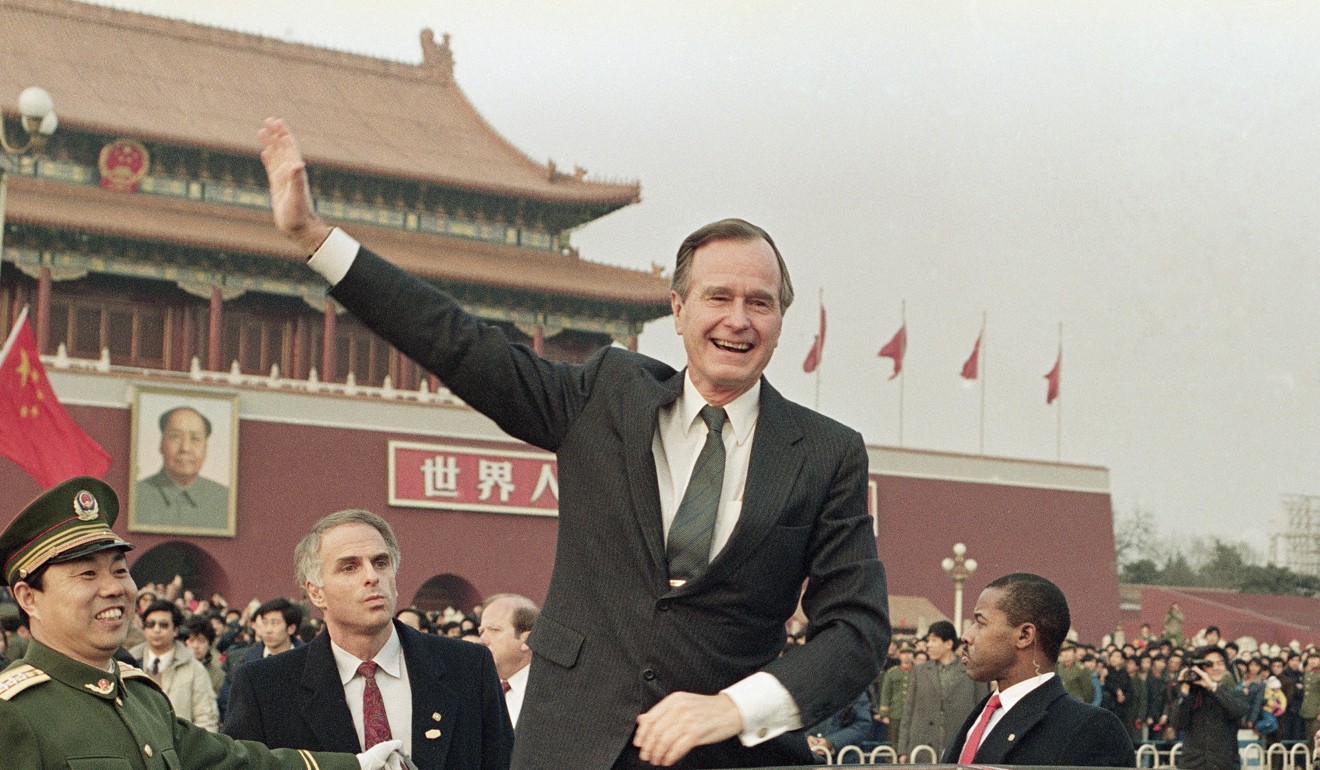
Calm down, America. China doesn’t have any real influence on Americans, or soft power sway
- Liu Xiaobiao says US media and culture have a stronger influence on the Chinese public than vice versa, despite claims to the contrary. A former US president was widely mourned in China recently, but could you imagine the opposite scenario?
It may be a hot topic right now, but talk of Chinese influence in the United States is seriously exaggerated.
Last month, dozens of moderate scholars who had long advocated engaging with China issued similar warnings in a report from the Hoover Institution at Stanford University and the Centre on US-China Relations at the Asia Society. The report also recommended countermeasures against China.
In fact, the Chinese media churns out stereotypical content that is boring even to a Chinese audience, so how could it be attractive to Americans? On the other hand, although some major American media outlets are banned in China, millions of Chinese still access their content via VPN. As a result, American content is often reposted to Chinese social media soon after it is published.
Actually, the warnings of China’s supposed influence have come in part because China has no real influence in the US.
A year ago, the US-based National Endowment for Democracy published a report on China’s overseas influence entitled Sharp Power. No doubt, it contains creative and inflammatory language and reflects some non-Chinese people’s doubts and fears of China. But it does not reveal the essence of Chinese influence.
In an effort to gain more understanding and support from the world, especially the US, the Chinese government has hired a large number of people and spent a lot of money. But things do not always go according to plan: the results of the Chinese campaign have, in large part, been the exact opposite of what China wanted.

China’s current influence is mainly exerted through money, rather than effective persuasion and communication. The country’s attempts at projecting soft power are neither smart nor successful. Not only has it failed to expand its influence, it has also caused resentment and suffered rejection.
But if you walk into a bookstore in downtown Beijing today, you will find books written by Americans on almost every shelf. These are exercising an invisible, formative influence on Chinese people’s thoughts and ideals. Furthermore, Hollywood films and American brands (KFC, McDonald's, you name it) have all been part of Chinese urban residents’ lives.

Right now, the US has a deep, powerful influence on China’s politics, economy, culture and almost all other aspects. But, so far, China's influence on the US has mainly been economic; the other aspects are still accidental and superficial.
Undoubtedly, the levels of influence each country has achieved on the other are very different. In the US, the common attitude towards China is vigilance of, and growing resistance to, Chinese influence. Many politicians, scholars, journalists and businessmen are talking about China as if it is a threat.
Certainly, there are some valid reasons for American fears. First, China’s economic strength is growing rapidly, but it diverges from the US in its ideology and many other aspects. It is reasonable for people to fear the unknown.
Second, some decisions and actions of the Chinese government, at home and abroad, have astonished and disconcerted other countries. China is at fault sometimes, and other times, it is a case of other countries misunderstanding China. Indeed, China’s communications skills are seriously inadequate. When other countries question China, the Chinese government neither responds in a timely nor persuasive manner, and the situation is getting worse.
Today, both US Democrats and Republicans are highly consistent in their attitudes towards China. Their reports, speeches and studies are entwined. Their views are becoming identical and more critical, but they are also moving further away from the truth.
We have seen a destructive storm of public opinion on the emerging China threat. It is also a cognitive trap that many American politicians and scholars have fallen into. This undermines their previous wisdom and insights into China.
The serious exaggeration of China’s influence in the US is not only a major misjudgment but also seriously misleading. It raises doubts, and might even lead to total confrontation between China and the US.
China's reform and development will face serious constraints and huge obstacles. But in today's closely connected world, the US will also suffer considerable losses without one of its strongest partners. Potentially, this will not only shake the foundation of the bilateral relationship, but also undermine the stability of the Asia-Pacific region.
Liu Xiaobiao, a company employee in Beijing, is a former Chinese journalist and former visiting scholar at the University of California at Berkeley and Harvard University

